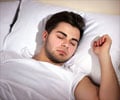Explore the 'first night effect' and its evolutionary roots, shedding light on sleep challenges in new settings.
- The ‘first-night’ effect stems from ancestral survival instincts in unfamiliar territory
- Sleep quality is impacted by habits, environment, and personal health conditions
- Struggling to maintain strict routines in novel settings
The First Night Effect: A Cautious Reaction
Our evolutionary background plays a significant role here. In the wild, our ancestors had to exercise caution in unknown surroundings to ensure their survival through the night. Therefore, the heightened vigilance many of us feel—now referred to as the first night effect—is a reflection of our innate predisposition to be alert in new environments. This vigilance serves as an inherent safety mechanism, designed to enhance our ability to detect and respond to potential threats.But if we are evolutionarily wired to stay vigilant on the first night in an unfamiliar setting, why do some individuals seem to experience it less? We've all encountered people who can fall asleep effortlessly, whether at home or in a hotel. Kelly Murray, an adult sleep coach, sheds light on this, saying, "Its intensity and likelihood varies among individuals based on specific factors—such as current sleep hygiene practices, transitions across time zones, the quality and familiarity of the new sleep environment, and individual personal and medical conditions... Individuals with established sleep routines and healthy sleep habits may experience a milder impact."
Furthermore, the first-night effect isn't the sole reason for struggling to fall asleep in a new place. Often, alterations in one's usual sleep environment—such as ambient noise, lighting, temperature, bedding texture, or pillow softness—can influence sleep quality until they become accustomed to these new features. Just as it may be difficult to sleep in a noisy environment next to a bustling street for someone accustomed to peace and quiet, finding oneself in a communal sleeping arrangement, as is common in family weddings, camping trips, or situations with limited space, can also hinder sleep, especially for those unaccustomed to sharing a bed (1✔ ✔Trusted Source
Can we put the first night effect to bed? An analysis based on a large sample of healthy adults
Go to source).
For individuals with autism, these challenges may be heightened due to the need for a strict schedule or routine in a familiar environment, as noted by News Medical.
Ultimately, as humans, we thrive on routine. As sleep medicine neurology specialist Muhammad Najjar told CNN, "There can be a lot more anxiety around sleeping away from home, and that can make it more difficult to sleep."
How to Combat Poor Sleep
Many individuals grapple with poor sleep due to various factors, with sleep apnea being a prevalent culprit that significantly affects sleep quality.- To combat these issues, incorporating a white noise machine into one's bedtime routine can prove immensely helpful
- Limiting exposure to electronic devices in the hours before bedtime can mitigate tossing and turning, allowing for a more restful slumber
- Engaging in deep breathing exercises for about 30 minutes prior to sleep can effectively calm the mind and lower heart rate, setting the stage for a more peaceful night
- Establishing a consistent sleep schedule and adhering to a structured bedtime routine can greatly improve sleep quality, ultimately reducing the amount of time spent tossing and turning
”It's evident that there are numerous factors contributing to the challenge of falling asleep in new places. While there may not be much one can do to change this, one can take comfort in the knowledge that it's ultimately our brain's way of safeguarding us.”
- Can we put the first night effect to bed? An analysis based on a large sample of healthy adults - (https://pubmed.ncbi.nlm.nih.gov/36220800/)
Source-Medindia













